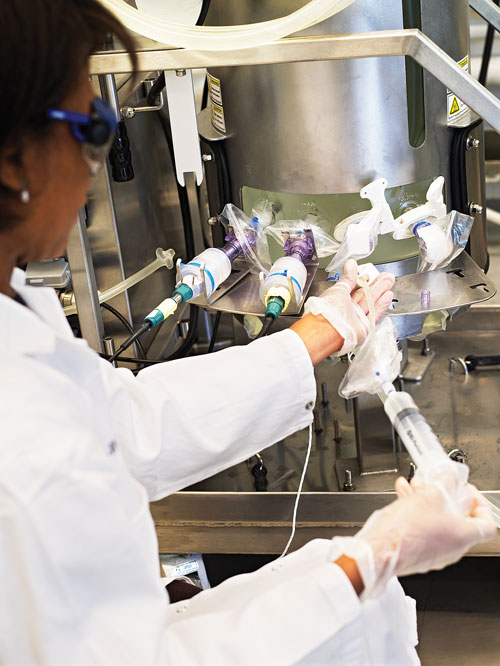Recipharm is partnering with Ahead Therapeutics to develop a new treatment for myasthenia gravis, a rare autoimmune disease. Ahead Therapeutics is a Spanish start-up biotechnology company that is using proprietary technology to develop treatments for different autoimmune disorders.
Recipharm will provide analytical and process development capabilities to support toxicology studies, as well as GLP manufacturing of lipid nanoparticles to encapsulate the active pharmaceutical ingredient, an antigen peptide. Recipharm also offers the capacity to scale up manufacturing for eventually commercializing the therapy.
Myasthenia gravis is a rare autoimmune disease that most commonly affects the muscles controlling the eyes and eyelids, facial expressions, chewing, swallowing, and speaking, but can also impact other parts of the body. It is estimated that the condition affects roughly 150,000 people worldwide. At present, there is no cure and treatments focus on keeping the disease under control.
One in ten people are affected by autoimmune diseases
“Autoimmune diseases affect approximately one in ten individuals, meaning 0.8 billion patients globally will be able to benefit from the drugs derived from our platform,” says Martí Dalmases Arnella, PhD, CEO of Ahead Therapeutics. “Recipharm is dedicated to helping organizations like ours that work to develop treatments for rare diseases.”
“There are more than 7,000 rare diseases that need a cure,” adds Ulrike Lemke, president of Recipharm’s sterile fill & finish business unit. “We are proud to be partnering with Ahead Therapeutics and look forward to providing a GLP environment to scale up production for a vital treatment to tackle what is currently an unmet patient need. “We have the expertise to help Ahead Therapeutics bring drugs to market faster, so they can continue to deliver on their promise to change patients’ lives.”
Officials at Ahead Therapeutics say the company has extensive experience in fighting autoimmune conditions, as well as other orphan diseases. Its newly developed solution for myasthenia gravis, which is intended for parenteral administration, is based on the use of phospholipid liposomes containing the antigen peptide. Through a biomimetic process, these liposomes can induce antigen-specific immune tolerance, thereby interrupting the autoimmune reaction.
By changing the encapsulated autoantigen, the technology can address the treatment of different autoimmune diseases, type 1 diabetes; multiple sclerosis; and celiac diseases, among others, according to the company.


